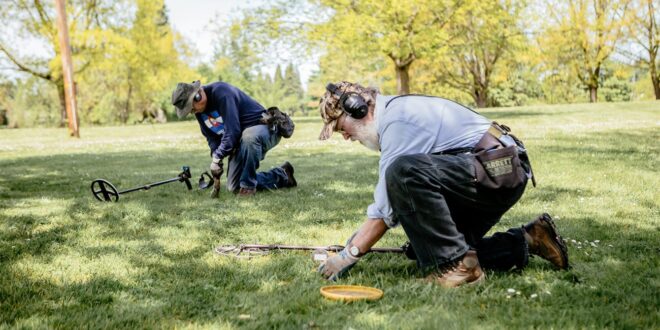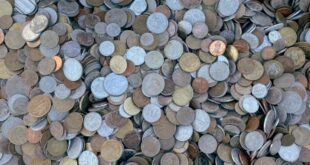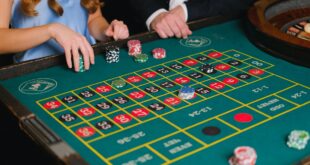One of the main triggers that most often make people wonder about metal detecting is the thought of the possibility to find a real treasure. Movies about treasures, historical documentaries, and generally the idea of a treasure buried somewhere under people’s feet excite the minds and people start wondering how to get them.
A quick search on Google brings them to the website with the best multi frequency metal detectors where they can read the guides and reviews and begin learning the art of metal detecting.
When one starts digging deeper into the issue (pun intended!), it turns out that everything is a bit more complicated. There are many places that have already been literally combed through by other professional detectorists, there are skills that should be learned first, there is equipment to be bought and a budget to be spent… So, before one gets excited about a potential treasure in their backyard and then gets disappointed about the low odds of getting it, let’s look into the hobby of treasure hunting and what is needed for it.
Treasure Hunting as a Hobby
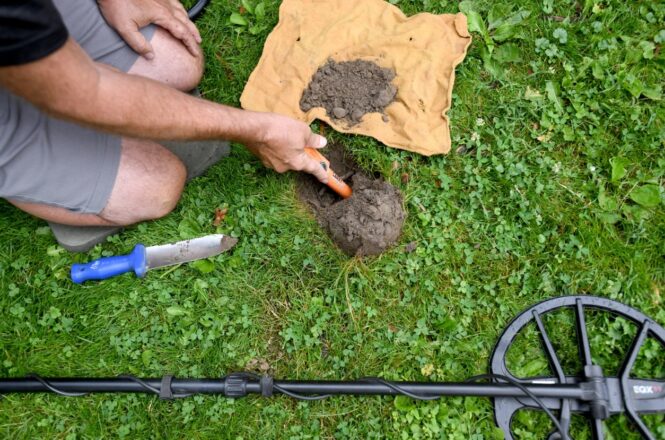
Treasure hunting can be a hobby or it can be almost a profession, but the latter option is for very few people, really. Most start it as a hobby and stay on this level. Treasure hunting can be fun and entertaining, and even useful for health as a moderate physical activity and time spent outside.
Most people prefer to hunt for treasures like coins and relics. They may pursue various goals; some look for coins and relics just to have a hobby that is different from their everyday life; some don’t care much what to look for because their main goal is to socialize and spend time with friends; some would like to start their own collection just for pleasure because they have an interest in history or culture. Other people still would love to find a treasure in order to sell it to a national museum or to a private collector. So, this hobby may take different forms, and suggest different levels of engagement.
Preparation for Treasure Hunting
Coins, relics, ancient jewelry, and war relics can all be buried right under your feet, and some people are lucky enough to spot them when digging a hole in their garden to plant a tree. However, these lucky ones are few, and those who want to find some treasures need to research, explore, learn and prepare. The key aspects to consider are desired targets, local history, locations, skills, and equipment.
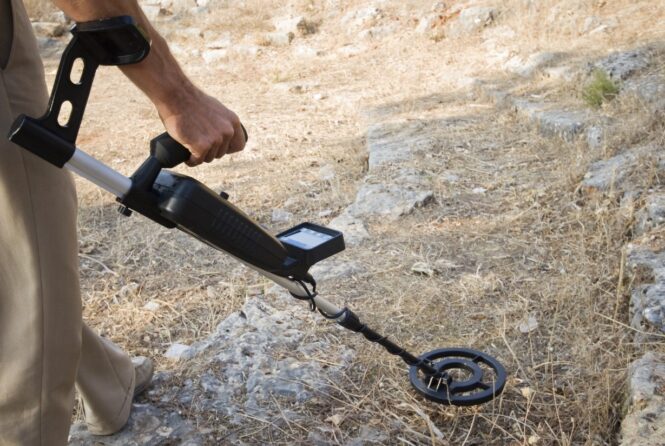
Targets
There are desired targets and realistic targets. Obviously, everyone would love to spot a pot of gold, but the majority of pots of gold have already been found. So, the wannabe treasure hunter should think of the targets – objects – they are more interested in and find out if those targets are potentially findable in locations available to them.
Coins and relics are findable almost anywhere, but certain objects can only be found in specific areas, or in specific soils. For example, gold nuggets are most often found in highly mineralized soils. So, most people don’t mind gold nuggets, but few are ready to travel across the country for that; most people decide to settle with some coins.
Local History
Learning more about local history can give obvious benefits and bring more interesting finds – or even treasures – without traveling across the country, which is definitely a more advantageous situation, especially for newbie detectorists. This is why everyone is recommended to check historical events in their area and around, go to the library and look at old city maps, and find out where markets, pubs, churches, and city halls were situated in the past. The general rule of thumb is that treasures can be found where people lived, worked, and had fun.
Sometimes, it makes sense to learn some family history or ask older people about stuff that is not in the books. Older locals may provide some insider information or just more details about the already well-known historical facts.
Locations
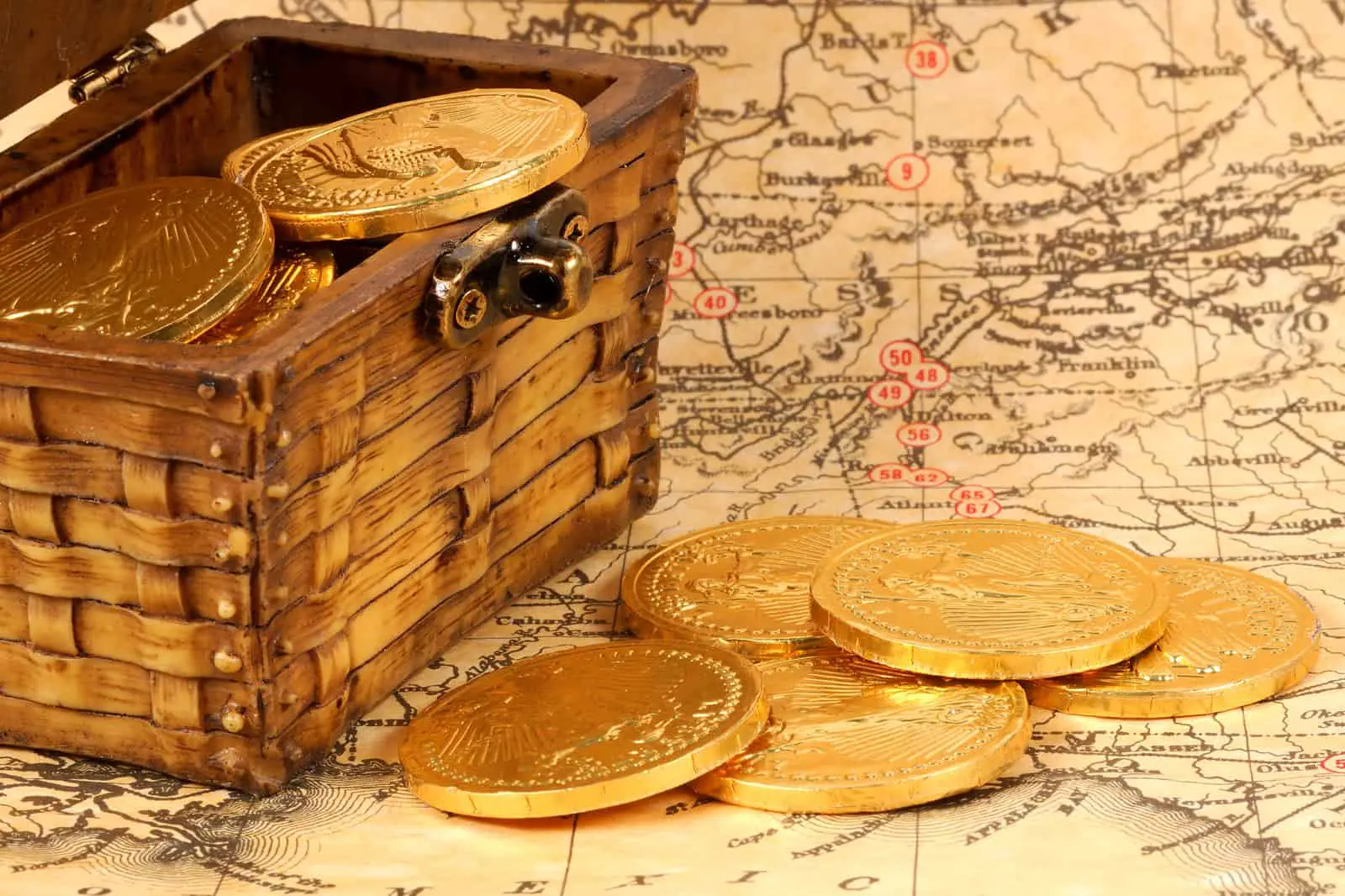
After the treasure hunter decides on targets and learns more about local history, they are ready to choose the right locations. Overall, there are no bad locations, except the obviously fruitless ones like in the middle of the modern street. However, if we are talking about treasures, not all locations may work out; the detectorist may find some broken modern gold jewelry or a lost smartphone in the public park or in the shallow water on the river bank, but these are not exactly the treasures he or she was targeting. Therefore, priority should be given to historically, culturally, and socially important locations.
Metal Detectors
Eventually, the equipment is necessary for fruitful treasure hunting. There are many different brands and types of metal detectors, but the user will never get lost if they are aware of their targets and their locations. The desired targets define a part of technical specifications, like search modes, frequencies, discrimination, etc. Locations define the other part of tech specs, for example, the level of waterproofness.
Actually, not all metal detectors are users friendly, in this case, some guides or books may help you make the first steps with metal detectors.
Necessary Skills
Metal detecting for treasures is both easy and complicated. It is easier than one may think because modern detectors are high-quality and comparatively easy to use; some detectors for beginner-level treasure hunters work by the “switch on and go” concept. However, using a metal detector might be easy but finding and recognizing a treasure is difficult.
Metal detectors, even beginner-level ones, have certain features that need some practice to be used with efficiency; this is especially true for more advanced machines. Therefore, the skills of choosing the right search mode, discrimination, frequency, the skills analyzing the signals, etc. are necessary and will be learned with time.
You Have Found Your Treasure. Now What?
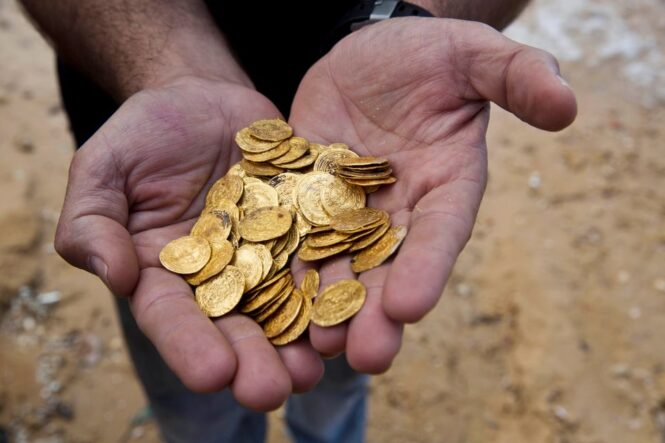
If you have found your treasure and have managed to dig it out without damaging it, congratulations! Now you have to decide whether you need to clean it, how you will store it, and what you do with it afterward.
Some beginner treasure hunters are so excited about their finds that they feel the urge to clean the object and make it shine in all its beauty. However, even experts are very cautious about cleaning old objects, because some objects are more fragile than they appear, and may be damaged easily.
Next, cleaning ancient relics and coins is a complicated process. And eventually, some objects will lose their value if you clean them, even if they are not damaged mush after cleaning. So, if you think you have found something really valuable, better seek advice from an expert first. Storing relics and treasures also requires certain conditions that you might want to learn about.
Afterward, you may want to start your own collection and keep the treasure, or you may want to sell it to a museum or to another person’s private collection.
 Imagup General Magazine 2024
Imagup General Magazine 2024
